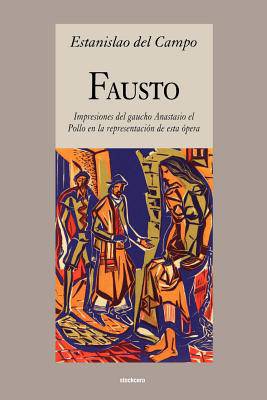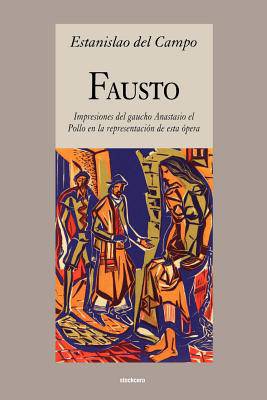
Bedankt voor het vertrouwen het afgelopen jaar! Om jou te bedanken bieden we GRATIS verzending (in België) aan op alles gedurende de hele maand januari.
- Afhalen na 1 uur in een winkel met voorraad
- In januari gratis thuislevering in België
- Ruim aanbod met 7 miljoen producten
Bedankt voor het vertrouwen het afgelopen jaar! Om jou te bedanken bieden we GRATIS verzending (in België) aan op alles gedurende de hele maand januari.
- Afhalen na 1 uur in een winkel met voorraad
- In januari gratis thuislevering in België
- Ruim aanbod met 7 miljoen producten
Zoeken
Omschrijving
In Estanislao del Campo's Fausto, a truly "gauchesca" work, the vocabulary, the simplicity of its plot and the nature of it's metaphores cannot be of a more unencumbered and jocose "criollo" tone, or more camp flavoured. It is known that during the representation of Gounod's opera Faust at the old Colon theatre in Buenos Aires, Del Campo improvised for the benefit of Ricardo Gutiérrez -phisician, poet and friend- some short "gaucho" remarks about what they were seeing. Encouraged by the amused Gutierrez, Del Campo decided to put his "gauchipoéticas" remarks by written, and in little more than a month the book became a huge literary success. Its hilarity lies in the fact that the gaucho is a peasant, and through his point of view the actions take the graphic simplicity of the camp world, blithely distorting the medieval drama. Reading Fausto today is as much fun as it was a hundred and forty years ago, reason enough to do it without the need of considering that it also integrates, along Hilario Ascasubi's Santos Vega and José Hernández Martín Fierro, the gauchesca poetry ultimate trio. The lexicographic notes included in this edition are the result of a research work based on the following sources: Eleuterio F. Tiscornia "Edición crítica de Poetas Gauchescos", Ed. Losada, Bs. As, 1940; Emilio Solanet "Pelajes Criollos", Ed. Kraft, Bs. As. 1955; Tito Saubidet "Vocabulario y refranero criollo", Ed. Kraft, Bs. As. 1943; Juan Carlos Guarnieri "El habla del boliche", Editorial Florencia & Lafon, Montevideo 1967; Juan Carlos Guarnieri "Diccionario del leguaje campesino rioplatense", Editorial Florencia & Lafon, Montevideo 1968; Daniel Granada, "Vocabulario rioplatense razonado", Imprenta Rural, Montevideo 1890; y Ramón R. Capdevila "1700 refranes, dichos y modismos (región central bonaerense)", Ed. Patria, Bs. As. 1955.
Specificaties
Betrokkenen
- Auteur(s):
- Uitgeverij:
Inhoud
- Aantal bladzijden:
- 96
- Taal:
- Spaans
Eigenschappen
- Productcode (EAN):
- 9789871136247
- Verschijningsdatum:
- 13/11/2004
- Uitvoering:
- Paperback
- Formaat:
- Trade paperback (VS)
- Afmetingen:
- 152 mm x 229 mm
- Gewicht:
- 149 g

Alleen bij Standaard Boekhandel
+ 47 punten op je klantenkaart van Standaard Boekhandel
Beoordelingen
We publiceren alleen reviews die voldoen aan de voorwaarden voor reviews. Bekijk onze voorwaarden voor reviews.









